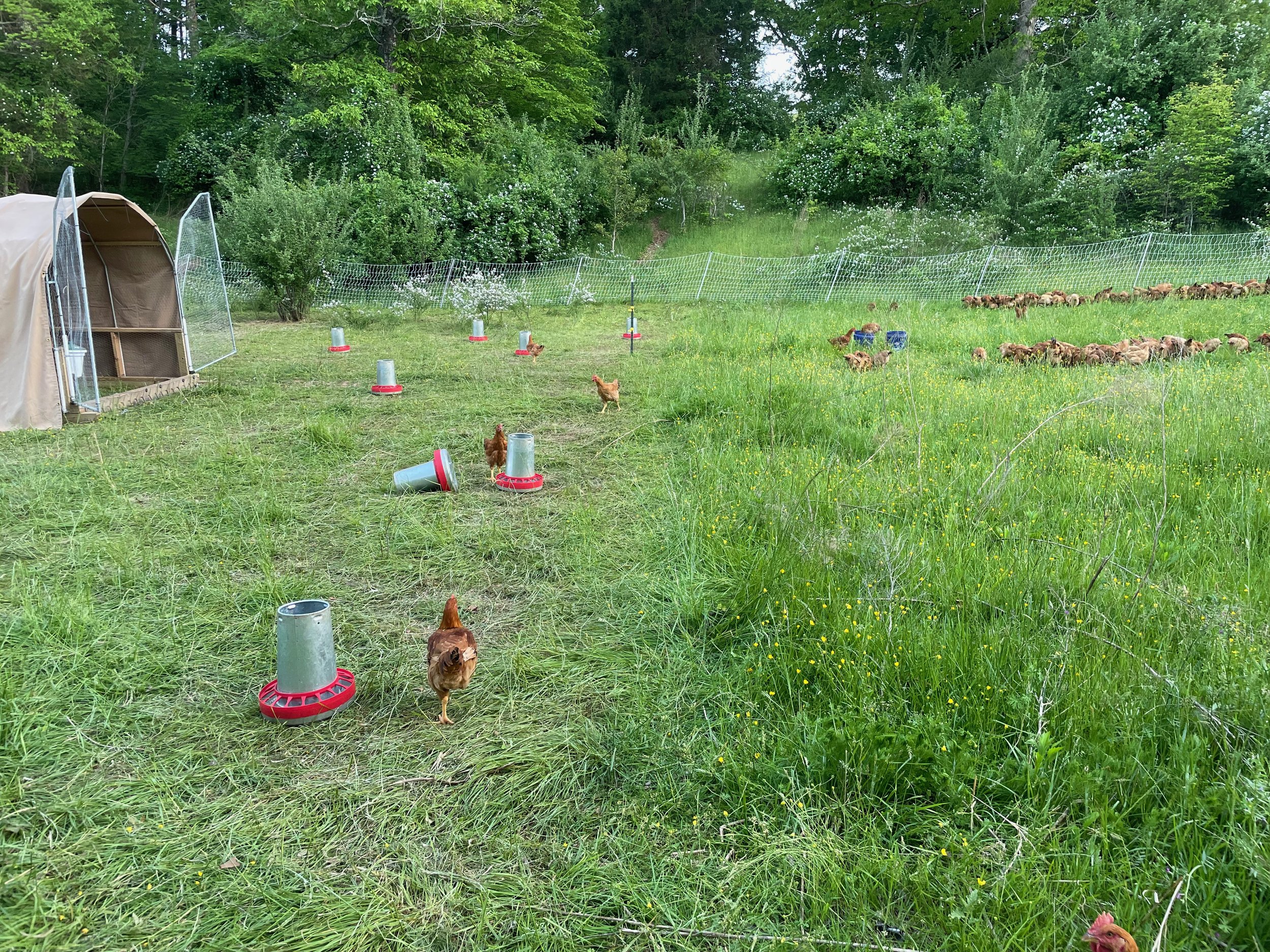Utilizing “Waste” Streams In Pastured Poultry Operations
Here at Old North, we’re constantly taking stock of our management decisions. Farming includes thought exercises of weighing pros and cons many times over, and coming to a place of peace with whatever decision is made, however temporary it might be. This season, we made the decision to utilize spent grain from our friends at Whaley Farm Brewery to help our chickens grow quickly. We believe this practice embraced the spirit of Regenerative Ag, while cutting back our input costs to boot. Here are some more details:
Ecologically kind:
One of the biggest issues facing humanity is waste. Tons of products produced by humans today are designed for single use. Whether it’s fashion, plastic tableware, or food, we suck at wasting things. And- all those things require extracting resources from the planet to be produced. Food waste is a huge contributor towards global warming. Feeding America estimates that even though 44 million people don’t have enough to eat in our country, 119 BILLION POUNDS of food is wasted annually.
Although the spent grain we use to supplement our chickens diet isn’t certified organic, we deeply trust the brewery that sources it to brew their beer. Like us, they research extensively and source from reliable barley growers. In total, the spent grain we receive makes up about 10% of our chickens’ diet. I hope that utilizing waste streams by small scale livestock producers will be a core tenant of the Regenerative Ag movement in the future. On a personal level, it has been fulfilling to grow high quality meat by keeping spent grain out of the landfill!
Socially sound:
Since the beginning, Old North has had big dreams of investing heavily in the community we’re farming in, supporting it in whatever ways we can. We believe this decision fulfills that in a small but meaningful way by helping our community become more circular. We drink beer at Whaley, we use their spent grain to feed our chickens, we sell chicken and eggs back to Whaley, and they sell it to awesome local folks like you! It’s a small circle, but it counts. We hope to integrate pigs back into this circle in 2024 - stay tuned!
Economically viable:
The single most challenging aspect of farming responsibly and ethically - for planet, animals, and humans - is being profitable. We spend the vast majority of our operating budget on organic feed every month, and we have to sell A LOT of chicken to break even on that expense. We love the quality of our feed, it’s regionally sourced, we aren’t willing to give it up for conventional feed, and our chickens thrive eating it. The major downside to feeding only organic feed eats away a massive chunk of our profits.
Implementing (free) spent grains doesn’t make a huge financial difference, but it does make a dent. If you’re thinking of getting into the chicken business, figuring out waste streams you can utilize can impact your enterprise by decreasing the frequency of feed orders you have to place, as well as increasing the overall feed volume for your chickens drastically. Rescuing unused produce from your local restaurants or grocery stores is another excellent way to lower feed costs and prevent waste.
The Summary:
Some Regenerative Farmers wouldn’t consider feeding their livestock anything that isn’t certified Organic. Our hat is off to them and their steadfast commitment to their values. In our model, we have decided that adding in feed supplements like spent grain and produce from sources we trust, even if they’re not certified organic, is an excellent way to divert waste from sitting in a landfill and off-gassing methane.
In the end, our advice remains the same: find a local farmer with practices that make sense to you, and support them! As for us, we’ll follow up with a more in-depth guide on how farmers and consumers alike can minimize food waste and have a directly positive impact on the climate.


